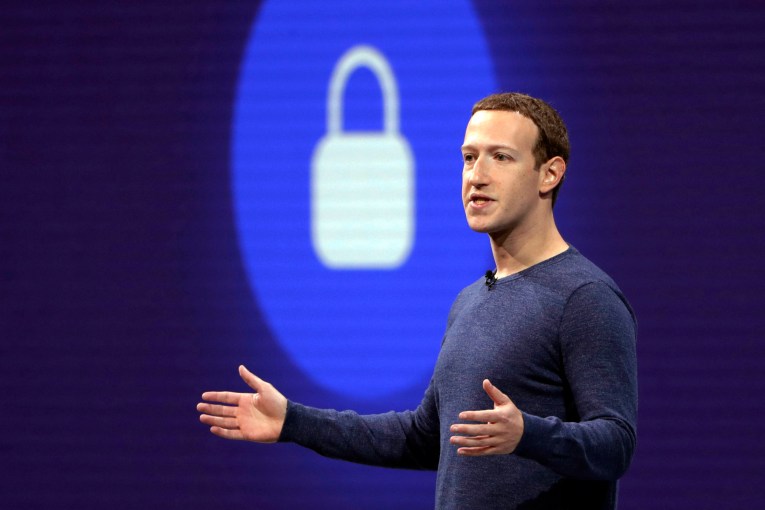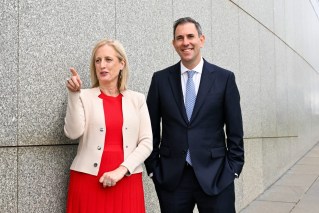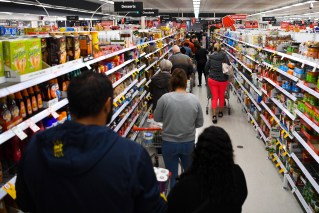A little bit of trust goes a long way, but how long can we make it last?
Perhaps the most under-appreciated side effect of three years of Covid disruption is our growing ability to trust each other, writes Shane Rodgers


Workplaces have been forced to adopt an honour system with so many staff now working from home. (Flickr/Nenad Stojkovic, CC BY)
In all of the debate and commentary around the COVID pandemic and its impact on ways of working, a very profound change in our workplaces may have been overlooked.
That is, the rise of trust.
During the pandemic, working from home (or anywhere) for workers in knowledge roles became an inevitable consequence of lockdowns. Companies had an urgent and pragmatic need to stay operational when many physical workspaces were effectively shut down.
There was not a lot of time to review how to supervise employees spread far and wide, how to measure productivity in a vastly changed workplace ecosystem and, frankly, how to be sure that people were actually working.
Suddenly it was all about trust. You needed to trust your people to deliver with nobody physically looking over their shoulder and away from the tangible office structures we largely took for granted in monitoring work commitment.
While I am sure there are mixed results across the corporate world, as a generalisation, it seems that most employees repaid the trust they were given with commitment and diligence.
In fact, many companies have gone from open scepticism about “working from home” to an acceptance that, where this is practical for a role, it will be a part of the employment mix. This is particularly the case when skills and labour shortages are giving workers a high level of bargaining power.
The way we can work today is in stark contrast to the work-world I first entered in the 1980s. My first full time job was at a bank and we literally had to “clock in” with a little card in a machine. If we arrived after the start of our allotted shift, the entry went red and you had to sheepishly find a senior manager and explain why your train arrived three minutes late.
Back then, even in relatively senior professional roles, people were allocated lunch and break times, and were expected to follow them down to the minute. I know some organisations still do that, but it is far less common now.
The COVID-led rapid change in the workplace trust environment has potentially broader cultural and societal impacts beyond the practical transformation of work.
You do not have to look too deep into social research to find evidence that trust has been in serious decline for some time. This includes trust in government, trust in organisations and structures, and trust in the leaders we rely on to plot the course and protect our way of life.
When Stephen M. R. Covey, the author of The Speed of Trust and Trust and Inspire, was in Brisbane in 2017, I attended one of his workshops, and I still keep the notes in my top drawer.
Covey said that the loss of trust was one of the biggest challenges facing the world and it needed to be considered as an economic driver, rather than just a social virtue.
In fact, he believed that trust was the number one leadership competency needed and that trust was a major driver of corporate opportunity and success.
“Trust is reciprocal,” Covey said. “To be trusted, you have to trust.” Trust bred confidence. Distrust bred suspicion. Workplaces without trust were “no fun”.
He answered questions about what you do when employees betray your trust with this quote from German entrepreneur Carl Freudenberg: “I prefer to give trust 100 times and be disappointed two to three times than live in constant distrust.”
It is still early days in determining which of the changes fast-tracked during the past three years will stick, and which will fade away once we fully reset normality.
The signs are that the increased trust between employers and employees to deliver without a “command and control” approach to management is part of a more permanent change.
It will, however, rely on the trust pact holding and, as we develop more sophisticated ways to measure productivity, longer-term evidence that flexibility and autonomy do indeed deliver more powerful outcomes.
We can only hope that we have seen a glimpse of a new world of human enlightenment that combines improved life balance with business results that encourage employment, skills development, and high standards of living.
The balance between the social and structural aspects of work, and the benefits of flexibility are still in flux as we assess what we have lost and what we have gained during the unexpected lifenado of recent years.
Equilibrium will come. And hopefully Stephen Covey’s vision of a better world built on mutual trust has begun to emerge from the dark pools of cynicism.
Shane Rodgers is a business executive, writer, strategist and marketer with a deep interest in what makes people tick and the drivers of change. Comments in this article are personal and not related to my day job.












